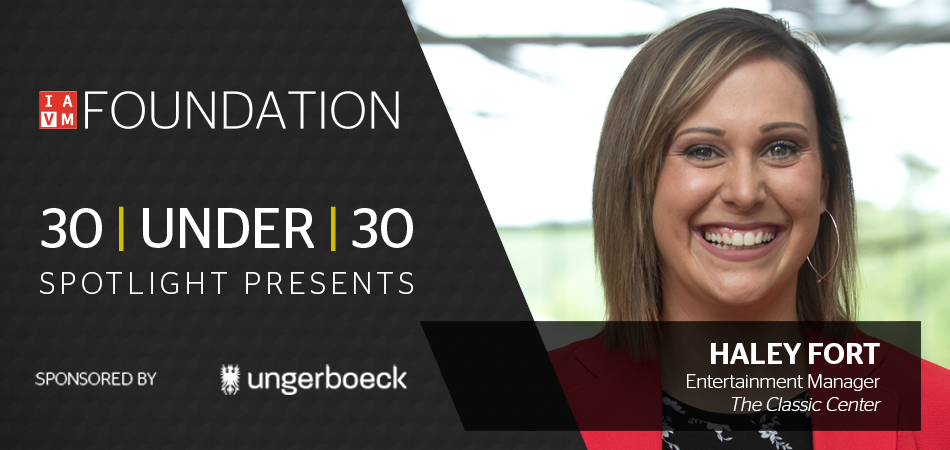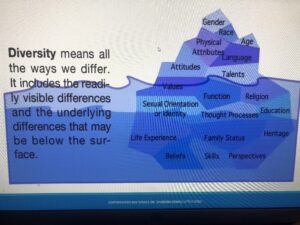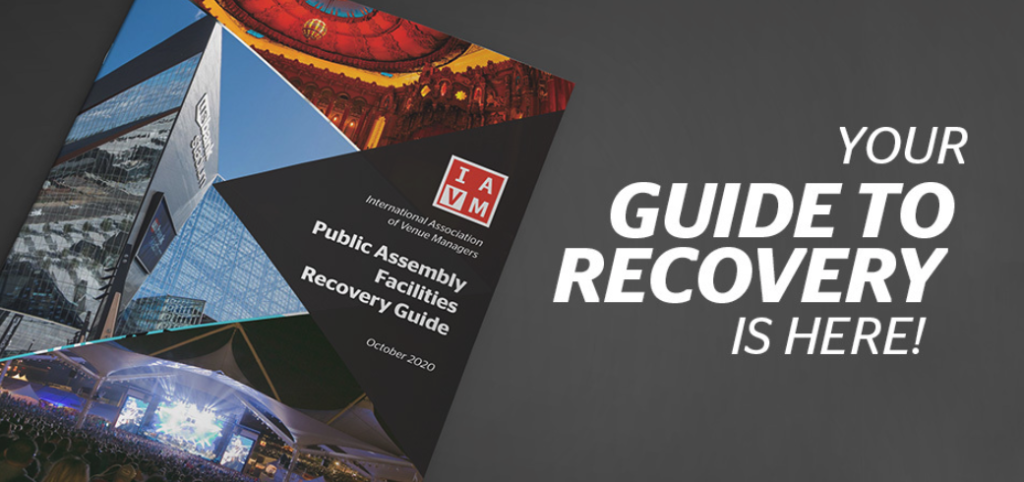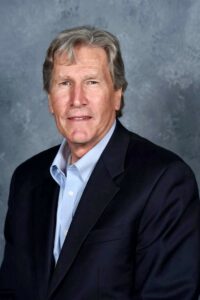30|UNDER|30 Spotlight: Haley Fort

Entertainment Manager at The Classic Center
Haley Fort is the Entertainment Manager at The Classic Center in Athens, GA. She graduated from The University of Georgia with a bachelors in publication management and a certification in music business. Go Dawgs! Haley enjoys live music, stand-up comedy, football season, and spending time with her dog, Charlie.
“Being accepted to the program was a high moment for me during an extremely challenging time in my career. This opportunity gave me the confidence and encouragement I needed to keep my head up and continue working towards my personal and professional goals. I felt, and still feel, proud to have been accepted into the program and look forward to growing beside my fellow recipients in the industry. I can’t wait to see what we all accomplish!”
Join your Foundation in congratulating Haley on being honored as one of the 30|UNDER|30 Class of 2020 and don’t forget to come back each Thursday as we spotlight another honoree!
Building an Inclusive Venue Culture MUST Start at the Top, Say VenueConnect Presenters
By R.V. Baugus
As Sharoni Denise Little, Ph.D., Ed.D., and Nick Schact pointed out in their highly anticipated session on Leading from the Top: Building an Inclusive Venue Culture, it is impossible for an organization to be at peak effectiveness if in fact that leadership in diversity, equity, and inclusivity does not begin with the very top in the chain of command. It is not enough for mid-management to build such an inviting culture, something every venue and its top management should take heed.
“It is very important to recognize as leaders when we think about diversity, equity, or inclusion, what exactly are we  seeking to accomplish?” said Little, who serves as Vice Dean/Senior Diversity, Equity, and Inclusion Officer Professor, Clinical Business Communication at the University of Southern California in addition to being CEO of The Strategist Company. “As executives, we have to look at how we monetize everything we do and recognize if there is a cost benefit analysis of ensuring that every member in our organization is getting to experience to the fullest because we know that the converse might be lower productivity, demotivation, harm to the culture, and that definitely is a risk when we look at risk management.”
seeking to accomplish?” said Little, who serves as Vice Dean/Senior Diversity, Equity, and Inclusion Officer Professor, Clinical Business Communication at the University of Southern California in addition to being CEO of The Strategist Company. “As executives, we have to look at how we monetize everything we do and recognize if there is a cost benefit analysis of ensuring that every member in our organization is getting to experience to the fullest because we know that the converse might be lower productivity, demotivation, harm to the culture, and that definitely is a risk when we look at risk management.”
So, what should that positive experience look like?
“If we are seeking belong where I know that I can come to a space and do my job and that I am connected to the organization and the people in it, I can contribute and not look at any barriers or limitations,” Little said. “But, there has to be evidence of the benefits of it throughout the organization in terms of policies and practices of the leadership. To really understand these concepts first-hand, we are not saying it’s a one size fits all. We cannot create our organizations to be only adapted for leaders or for particular departments, but how are we creating spaces that meet people where they are?”
With a rapt VenueConnect audience that reached 220, it was a session that certainly had the attention of attendees.
“If people don’t feel they have the three factors of survival, safety and security, and social, they can’t think about what the needs of the business are,” said Schact, Chief Global Development Officer for Society for Human Resources Management, in an analogy he related to Pavlovian conditioning. “In leadership roles, we have to model this to be effective. We can’t turn this over to somebody. You can say, I’ve got a chief diversity officer or a diversity and inclusion council to handle all of that. If your behavior doesn’t speak to this inclusive presence that is valuing the diverse population teams we have in our organization, then no one is going to pay any attention to what you say or what they think you are saying. They’re just going to follow the example that you create. Diversity alone doesn’t cut it. Diversity alone is just a numbers game although it is a necessary first step. If we don’t do the rest of it, we don’t get anything else done.”
Moderator Cynthia Tucker, vice chair of the IAVM Diversity & Inclusive Leadership Committee and Assistant Director of Event Operations, University of Southern California – Trojan Event Services, posed the question of why should venue managers have diversity as a core priority, or one of the core priorities.
“Venue comprise spaces and places where our customers can come for purpose,” Little responded. “When they come, from an external perspective they are wanting to not only enjoy the experience but they want to see a reflection of who they are. When we think about being thoughtful, intentional, and strategic about the type of experience we want consumers to have, we have to reflect that in our strategy and our planning. So, as venue managers it’s important that we say why this should be at the forefront when you think about, for example, the type and ways in which we make decisions in terms of composition, in terms of setup, in terms of how we meet them. They are coming to us with an intentional objective.”
Tucker shared that in a poll involving IAVM members that 58% have an EI plan while 42% do not. Asked to address some steps the lower number group could take to formulate a plan, Schact said, “Start by getting executive buy-in. It has to come from the top.”
“Anybody can put together a plan,” he added. “A plan is just writing stuff down on a piece of paper. But if you don’t have commitments to the plan, you won’t move past this very first thing.”
After that, Schact said it is possible to focus on the specific issues needing to be solved.
“It may be representational,” he said. “Do we have diverse representation in our population? If we do, the question then becomes one more of equity. Is there equitable representation across the organization? Do the diverse populations actually feel included?”
The two experts went on to discuss a myriad number of topics related to the session title that by the end of the panel presentation should needle that 42% up.
Public Assembly Facilities Recovery Guide Launches

By R.V. Baugus and Amy Fitzpatrick
The “Public Assembly Facilities Recovery Guide” is now available as written guidance designed to help venues make reasonable decisions as it relates to the health and safety of all venue occupants. IAVM has conducted extensive research to provide recommendations that are advisory in nature, informational in content, and intended to assist venues in providing safe and healthy workplaces. This guide is not designed to circumvent government guidance. As the pandemic continues to evolve rapidly, the Reopen and Recovery Taskforce continues to monitor and evaluate scenarios that impact our members. This written guide serves as a working document that remains flexible and may be adapted for each venue’s specific reopening needs.
“While developing the written guides, our working task force assured that event venues will follow medical and governmental guidance and not circumvent the science of any pandemic,” said Mark Herrera, IAVM’s Director of Education | Life Safety. “The written recovery guide reflects extensive review and input from subject matter experts across the spectrum of public assembly venues and will continue to evolve as more scientific and medical information becomes available to assure all attendees and those working within all public assembly facilities are the top priority.”
IAVM’s task force worked collectively with representatives from all venue types, inclusive of other organizations, associations, sports leagues, the Federal Government, and alongside association leadership to gather data and and conduct research in order to develop the “Public Assembly Facilities Recovery Guide” so that all public assembly venues have written guidance designed to help them move toward recovery.
“The guide started out as research for my organization but turned into an opportunity to help an industry I love,” said Eboni Wilson, guide co-author. “The guide is a compilation of all the latest information and resources related to COVID. It allows our colleagues one place to find the information they need regarding COVID and our industry.”
“This guide is the result of months of research, collaboration, and strategic planning,” added Zakiya Smith-Dore, MBA, CVP, University of Florida Performing Arts and co-author of the guide. “While no one anticipated the pandemic or that it would last as long as it has, we are grateful for everyone who immediately jumped into action to help us understand how to overcome the challenges of this unprecedented time. I am confident that our industry will only continue to grow stronger as a result of the efforts of IAVM.”
To download the guide, click here.
Several individuals have played an important role in making the Public Assembly Facilities Recovery Guide a reality. Special thanks to the following in addition to co-authors Eboni Wilson and Zakiya Smith-Dore:
CONTENT WORKING GROUP
• Agmar Varela Lopez
• Jessica Stanley
• Kenneth Malik
• Samantha Willrich
• The Reopen & Recovery Taskforce
EDITORS
• Billy Langenstein, CSSP
• Dominic Bruno
• Eileen Kulish
• Joe Levy, CVE
• Joey Sampson
• Kathryn Carlson, CVP
• Larry Perkins, CVE, CPP, CMP
• Lori Garza
• Mark Herrera
• Paula Kirchman, CVE
• Phil Costa, CVP
• Rob Levin
• Robby Elliot, CVP
• Russ Simons
• William Flynn
Before You Go, Brad Gessner, It’s Time to Be Honored with the Convention Center Lifetime Achievement Award
By R.V. Baugus
Brad Gessner, CVE, ASM Global’s Senior Vice President, Convention Centers at the Los Angeles Convention Center, bid a retirement adieu to the industry earlier this year after a sparkling 42-year career in public assembly venue management.
Let’s just say before he left the building, he was ushered back in for a curtain call during VenueConnect to be recognized with the 2020 Lifetime Achievement Award as bestowed by IAVM’s Convention Center Committee.
Gessner was surrounded on a Zoom screen by the top individuals at four of the AEG venues that the long-time industry  veteran oversaw in Rob Hampton, Palm Springs Convention Center; Teri Orton, Hawaii Convention Center; Jorge Perez, Puerto Rico Convention Center; and Ellen Schwartz, Los Angeles Convention Center; along with Committee Chair Naz Sabripour.
veteran oversaw in Rob Hampton, Palm Springs Convention Center; Teri Orton, Hawaii Convention Center; Jorge Perez, Puerto Rico Convention Center; and Ellen Schwartz, Los Angeles Convention Center; along with Committee Chair Naz Sabripour.
“Although I retired at a great time, I do miss working with you guys and the great teams in LA, Hawaii, Puerto Rico, and Palm Springs. What I really got out of all this is it sounds like I’ve got a free hotel room in four resort communities,” Gessner said after each of the four gave the boss a standing offer to visit anytime.”
Turning serious, Gessner thanked Stacey Church and the committee for selecting him and placing him in – appropriately named enough – distinguished company.
“Honestly, when you retire you get scratched off the list and you go to the bone yard but when I got Stacey’s call I was surprised and I was flattered and really appreciative to receive this recognition,” Gessner said. “I’m in good company. I remember the first year it was awarded and I’m shocked that I’m in their company. All of them are people that I knew and admired and still do and all have been and are great leaders in our industry.”
Gessner then proceeded to provide a roll call of Who’s Who names who previously were recognized with the award, including Tom Liegler, Don Jewell, Jimmie Fore, Dan Saunders, Cliff Wallace, John Christison, Dick Shaff, Tom Mobley, Peggy Daidakis, Bob Mayer, Carol Wallace, Frank Poe, Steve Schwartz, and Jeff Blosser.
“To be in that company is very humbling and most of you who know me there’s not much humbly about me but it definitely has humbled me,” he said. “I also want to thank Bob Newman and the opportunity he gave me back in 2012 to start a new convention centers department with AEG. Bob is now the president and CEO of ASM Global, a powerhouse company, but it was Bob’s leadership and his support of me really gave me the opportunity for us to do what we were able to do in LA, Hawaii, Puerto Rico, and Palm Springs. We were four-for-four and for that I am obviously very proud.”
Gessner gave credit to all of the teams assembled at all the venues he has worked and led.
“It has been a great 42-year career and I’m not telling any of you anything you don’t know that we really are in an incredible profession,” he said. “We manage buildings generally, but the folks that we work with means we are really in the people business. Although I am very proud of a lot of the accomplishments that we did and I always say it takes teamwork, I think the one achievement that I’m most proud of is being able to assemble really good people and to be able to see so much character and look at their experience and their work ethic and their content of character.”
Then to be able to get the folks that are on our team to perform incredibly and the things that we accomplished together I really do believe that it is a major teamwork. I want to thank Bob Newman and the whole team from AEG for making us all look good because it was one heck of a deep bench.”
Gessner finished his remarks by acknowledging his decades-long affiliation as an IAVM member and urged individuals to become engaged in the association.
“I was one of those old-school guys that didn’t want to give up the IAAM name (before it was changed to IAVM) just because that’s what it had always been,” Gessner said. “Having been a member for over 30 years and what the association provides to us members through networking opportunities, educational opportunities, advocacy and helping to find a way for us to reopen and get everybody back to work … support IAVM, get active in IAVM.”
Attendees who missed this prerecorded portion of the session can still view it by clicking HERE. The full conference recordings, even those held live this week, will be available beginning November 3rd through the conference platform.
Several IAVM Member Venues Named Finalists for Best Convention Center by EXHIBITOR Magazine
 Earlier this year, Exhibitor Media Group, which produces both EXHIBITOR magazine and Find It – Marketplace, the buyer’s guide to trade show products and services, announced the 30 venues that qualified for its second annual Centers of Excellence list, which recognizes North America’s best convention centers for trade shows and events. Small, medium, and large convention centers located anywhere in North America were invited to apply, and entrants were evaluated using an objective algorithm weighted to reflect how EXHIBITOR magazine readers value a variety of variables. In addition to being named among the 2021 Centers of Excellence, a number of facilities qualified for special awards in the following categories.
Earlier this year, Exhibitor Media Group, which produces both EXHIBITOR magazine and Find It – Marketplace, the buyer’s guide to trade show products and services, announced the 30 venues that qualified for its second annual Centers of Excellence list, which recognizes North America’s best convention centers for trade shows and events. Small, medium, and large convention centers located anywhere in North America were invited to apply, and entrants were evaluated using an objective algorithm weighted to reflect how EXHIBITOR magazine readers value a variety of variables. In addition to being named among the 2021 Centers of Excellence, a number of facilities qualified for special awards in the following categories.
“Being named among our Centers of Excellence is a huge accomplishment,” said Travis Stanton, editor of EXHIBITOR magazine. “But to further acknowledge the best of the best, these special awards recognize the exhibitor-friendly venues that consistently exceed expectations and collectively raise the bar with regard to what a convention center is and should be.”
The finalists for each special award are listed below, and the winners will be announced during a ceremony held in conjunction with IAEE’s Expo! Expo!
Best Convention Center (over 1 million square feet of exhibit space)
Anaheim Convention Center
McCormick Place
Orange County Convention Center
Best Convention Center (500,000 – 1 million square feet of exhibit space)
Enercare Centre
Los Angeles Convention Center
Walter E. Washington Convention Center
Best Convention Center (100,000 – 500,000 square feet of exhibit space)
Greater Columbus Convention Center
Minneapolis Convention Center
Vancouver Convention Centre
Best Convention Center (under 100,000 square feet of exhibit space)
Edmonton Convention Centre
Greater Tacoma Convention Center
Overland Park Convention Center
Best New or Improved Convention Center
Caesars Forum
Cox Business Convention Center
The Broadmoor Event Center
Best Customer Service & On-Site Support
Cobb Galleria Centre
Mohegan Sun
Overland Park Convention Center
Do you want to receive a Front Row News weekly digest?
Categories
- Allied (856)
- Architecture (147)
- Arenas (744)
- Career (890)
- Convention Centers (889)
- Education (608)
- Events (1,528)
- Food & Beverage (193)
- Foundation (113)
- Guest Experience (1,482)
- Industry News (2,253)
- Leadership (1,872)
- Marketing (150)
- Membership (1,985)
- Music (212)
- Performing Arts Centers (453)
- Professional Development (398)
- Research (127)
- Safety & Security (425)
- Sports (763)
- Stadiums (607)
- Student (159)
- Technology (515)
- Ticketing (92)
- Touring (82)
- Trends (357)
- Uncategorized (771)
- Universities (216)
- Video (25)
- Young Professional (198)
Twitter Feed
- Twitter feed loading
Recent Posts
- GEODIS Park Selects Allied Universal As Its Preferred Event Services Provider
- Venuworks Appoints Marc Solis as Executive Director of the Fresno Convention and Entertainment Center
- Los Angeles Convention Center Diverts 8,000 Pounds of Wood Waste to Local Foundation Supporting Fire Victims
- Fort Worth Unveils Plans for Phase 2 of Convention Center Transformation
- San Diego Convention Center CEO Announces Retirement After a Decade of Leadership
Categories
- Allied
- Architecture
- Arenas
- Career
- Convention Centers
- Education
- Events
- Food & Beverage
- Foundation
- Guest Experience
- Industry News
- Leadership
- Marketing
- Membership
- Music
- Performing Arts Centers
- Professional Development
- Research
- Safety & Security
- Sports
- Stadiums
- Student
- Technology
- Ticketing
- Touring
- Trends
- Uncategorized
- Universities
- Video
- Young Professional
Archives
- February 2026
- January 2026
- December 2025
- November 2025
- October 2025
- September 2025
- August 2025
- July 2025
- June 2025
- May 2025
- April 2025
- March 2025
- February 2025
- January 2025
- December 2024
- November 2024
- October 2024
- September 2024
- August 2024
- July 2024
- June 2024
- May 2024
- April 2024
- March 2024
- February 2024
- January 2024
- December 2023
- November 2023
- October 2023
- September 2023
- August 2023
- July 2023
- June 2023
- May 2023
- April 2023
- March 2023
- February 2023
- January 2023
- December 2022
- November 2022
- October 2022
- September 2022
- August 2022
- July 2022
- June 2022
- May 2022
- April 2022
- March 2022
- February 2022
- January 2022
- December 2021
- November 2021
- October 2021
- September 2021
- August 2021
- July 2021
- June 2021
- May 2021
- April 2021
- March 2021
- February 2021
- January 2021
- December 2020
- November 2020
- October 2020
- September 2020
- August 2020
- July 2020
- June 2020
- May 2020
- April 2020
- March 2020
- February 2020
- January 2020
- December 2019
- November 2019
- October 2019
- September 2019
- August 2019
- July 2019
- June 2019
- May 2019
- April 2019
- March 2019
- February 2019
- January 2019
- December 2018
- November 2018
- October 2018
- September 2018
- August 2018
- July 2018
- June 2018
- May 2018
- April 2018
- March 2018
- February 2018
- January 2018
- December 2017
- November 2017
- October 2017
- September 2017
- August 2017
- July 2017
- June 2017
- May 2017
- April 2017
- March 2017
- February 2017
- January 2017
- December 2016
- November 2016
- October 2016
- September 2016
- August 2016
- July 2016
- June 2016
- May 2016
- April 2016
- March 2016
- February 2016
- January 2016
- December 2015
- November 2015
- October 2015
- September 2015
- August 2015
- July 2015
- June 2015
- May 2015
- April 2015
- March 2015
- February 2015
- January 2015
- December 2014
- November 2014
- October 2014
- September 2014
- August 2014
- July 2014
- June 2014
- May 2014
- April 2014
- March 2014
- February 2014
- January 2014
- December 2013
- November 2013
- October 2013
- September 2013
- August 2013
- July 2013
- June 2013
- May 2013
- April 2013
- March 2013
- February 2013
- January 2013
- May 2012
- March 2012
- December 2011
- November 2011
- October 2011
Recent Comments
- Frank Bradshaw, Ph.D., CVE on John Meyer, CVE, a Tireless Advocate of Certification for Venue Professionals, Has Died
- Neil Sulkes on Hilary Hartung, Friend to Many in Venue Marketing, Has Left Us
- Jason Parker, CVE on The Devastation of Hurricane Helene and How We Can Support One Another
- Larry Perkins on Touhey Testifies Against Speculative Ticketing Before Congressional Subcommittee
- Peter Secord on Major Players for Planned Elkhart Amphitheater Were in the Mix at VenueConnect
